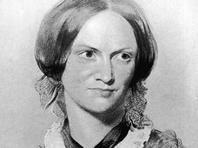
Charlotte Brontë
WRITER
Charlotte was born 1816, the third of the six children of Patrick Brontë, an Anglican clergyman, and his wife Maria Branwell Brontë. After their mother's death in 1821, Charlotte and her sisters, Maria and Elizabeth, were sent to Cowan Bridge Clergy Daughters' School, which Charlotte would later immortalize as the brutal Lowood school in "Jane Eyre". Conditions at the school were so bad that both Maria and Elizabeth became ill with consumption (tuberculosis) which killed them in 1825. Charlotte was very close to her surviving siblings, Anne Brontë, Branwell, and Emily Brontë. The children invented the imaginary kingdoms of Angria and Gondal, and spent much of their childhood writing poetry and stories about their make-believe realms. In 1846 the three sisters published a collected work of their poetry called, appropriately enough, "Poems", and in 1847 Charlotte published her most famous book, "Jane Eyre", under a male pseudonym, Currer Bell. Charlotte lost her remaining siblings within a brief time -- Branwell from alcoholism and Emily from consumption, both in 1848; Anne also from consumption in 1849. Charlotte was devastated, and became a lifelong hypochondriac. She resided in London, where she made the acquaintance and admiration of William Makepeace Thackeray. In 1854, she married Reverend A. B. Nicholls, curate of Haworth, against her father's wishes. Charlotte found she was pregnant not long after her marriage, and it was felt she would have a difficult pregnancy due to previous ill-health. She died on 31 March 1855.
-
When was
Charlotte Brontë born?
Charlotte Brontë was born on Sunday, April 21, 1816
-
Where was
Charlotte Brontë born?
Charlotte Brontë was born in Thornton, Yorkshire, England, UK
-
How old was
Charlotte Brontë when they died?
Charlotte Brontë was 39
-
When did Charlotte Brontë die?
Charlotte Brontë died on
Saturday, March 31, 1855
Follow Us